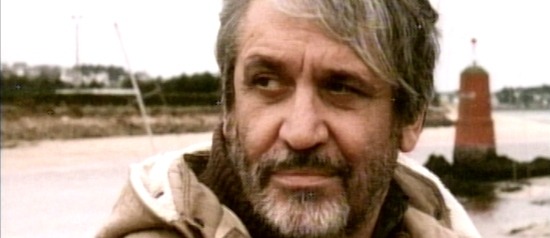
Image courtesy of Gaumont Film Company
RETROSPECTIVE
Maurice Pialat
October 16–November 1, 2015“The director who has the strongest and most consistent influence on young French filmmakers is not Jean-Luc Godard, but Maurice Pialat.” —Arnaud Desplechin
Maurice Pialat’s influence in the years after his death in 2003 was everywhere, but while he was alive he wasn’t part of any movement. A late bloomer who was 40 before he finished his first fiction feature (1968’s Naked Childhood), he missed the New Wave—a fact he seemed to resent, though his irascible personality likely meant he wouldn’t have belonged to any club which would have had him as a member.
Pialat made rule-breaking, violently disorienting movies full of temporal leaps and jagged improvisations, impolite movies about insoluble dilemmas and impossible personalities—women and men who can’t or won’t allow themselves to be tamed, and the tug-of-war between desire and responsibility. While intensely grounded in the cinema, citing the Lumière Brothers as his masters, Pialat rejected cinephile culture and lunged headlong into the material stuff of life, love, sex, and death. (He’s often compared to John Cassavetes, but this overlooks the particularities of both men.) Pialat’s films aren’t exercises but exorcisms, wounded howls at the injustice of existence whose anguished power is intensified by an acute awareness of the beauty of being alive. In a national cinema often associated with dainty sophistication, Maurice Pialat is the epitome of raw power.
Organized by Chief Curator David Schwartz and Assistant Curator of Film Aliza Ma.
Presented with support from Unifrance, the Cultural Services of the French Embassy, and Institut Français.
Special thanks to Mathieu Fournet, Aude Hesbert, Adeline Monzier, Amelie Garin-Davet, and Sylvie Pialat.

 SCREENING & LIVE EVENT
SCREENING & LIVE EVENTNaked Childhood (L’enfance nue)
Friday, October 16, 7:00 p.m.
 SCREENING
SCREENINGTurkish Shorts
Saturday, October 17, 1:30 p.m.
 SCREENING & LIVE EVENT
SCREENING & LIVE EVENTLoulou
Saturday, October 17, 3:30 p.m.
 Screening & Live Event
Screening & Live Event The White Knights (Les Chevaliers blancs)
Saturday, October 17, 7:00 p.m.
 SCREENING
SCREENINGPolice
Sunday, October 18, 4:00 p.m.
 SCREENING & LIVE EVENT
SCREENING & LIVE EVENTLe garçu
Sunday, October 18, 7:00 p.m.
 SCREENING
SCREENINGÀ nos amours (To Our Loves)
Friday, October 23, 7:00 p.m.
 SCREENING
SCREENINGWe Won’t Grow Old Together (Nous ne vieillirons pa…
Saturday, October 24, 2:00 p.m.
 SCREENING
SCREENINGThe Mouth Agape (La gueule ouverte)
Saturday, October 24, 4:30 p.m.
 SCREENING
SCREENINGGraduate First (Passe ton bac d’abord…)
Sunday, October 25, 2:00 p.m.
 SCREENING
SCREENINGUnder the Sun of Satan (Sous le soleil de Satan)
Sunday, October 25, 4:30 p.m.
 SCREENING
SCREENINGVan Gogh
Sunday, October 25, 7:00 p.m.
 SCREENING
SCREENINGLa maison des bois
Saturday, October 31, 1:00 p.m.
 SCREENING
SCREENINGLa maison des bois
Sunday, November 1, 1:00 p.m.

